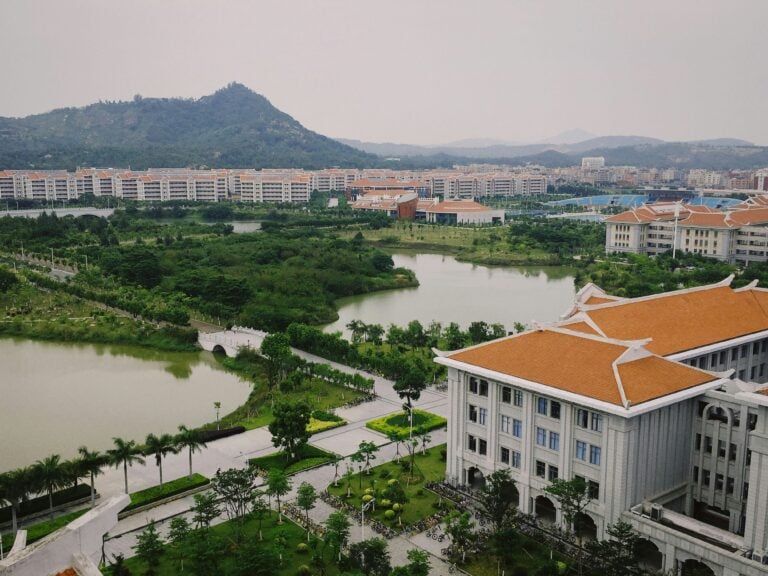
Table of Contents
Can Foreigners Buy Property in China? Understanding the Regulations and Purchase Procedure
Purchasing property in China as a foreigner is wrapped in legal complexities but is achievable under certain conditions. While the Chinese government permits foreign investment in real estate, the process involves adherence to specific regulations and requirements that can vary across regions within the country. Typically, one such stipulation requires foreigners to have resided in China for a minimum of one year under a valid work or study permit before they can proceed with buying property. This rule emphasizes the necessity for potential foreign investors to have an established connection to the nation.
Understanding China’s property law is crucial as it governs the transaction and ownership of real estate by foreigners. The laws dictate that foreign buyers are often allowed to own only one residential property at a time, and this is subject to their usage of the property for dwelling purposes rather than investment. Furthermore, certain cities like Shanghai or Beijing may impose additional conditions due to their unique administrative statuses. The purchasing process for foreigners embodies a series of steps, starting from pinpointing a suitable property to navigating through a myriad of paperwork, which includes obtaining a notarized sales contract and the various certificates required by the Chinese authorities.
Key Takeaways
- Foreigners can buy property in China following at least one year of residency with stringent conditions.
- Local variations in law and additional criteria exist, particularly in metropolitan areas.
- A detailed step-by-step process must be complied with, including significant documentation and legal verifications.
Eligibility Criteria for Foreign Buyers
When considering property acquisition in China, foreign buyers are subject to specific eligibility criteria. Understanding these regulations is crucial as they determine what, where, and how foreigners can purchase real estate.
Types of Eligible Properties
Foreign individuals are generally allowed to purchase residential properties in China, albeit with some limitations. They are typically not permitted to buy standalone houses and can only purchase apartment units. The property must be for personal use, and the buyer is usually required to prove residency, which means living in China for a certain period, such as one year of continuous residence before making the purchase.
Nationality Restrictions
While there are no explicit restrictions based on nationality, the political relationship between the buyer’s home country and China may informally influence the property purchase process. Foreign buyers may face more scrutiny or additional steps in the approval process, depending on their nationality.
Financial Requirements
Foreign buyers must demonstrate financial capability, which includes proving a legal and consistent income source—either from within or outside of China. Additionally, they are often required to make a higher down payment compared to local buyers — typically around 30% of the property’s value. Furthermore, foreign buyers need to use funds that have been legally remitted to China, complying with the country’s foreign exchange rules.
Understanding Chinese Property Law
Navigating Chinese property law requires recognizing the distinctive features that govern property ownership in China. Foreign buyers should especially be aware of the concepts of land use rights, leasehold periods, and compliance with legal requirements.
Land Use Rights vs. Ownership
In China, land ownership exclusively belongs to the state or, in rural areas, to collectives. Foreign individuals and companies cannot own land outright; instead, they can acquire land use rights. These rights allow them to use the land for a specified purpose and duration. When purchasing property, what is actually bought are these land use rights and not the land itself.
Leasehold Periods
The leasehold system in China gives individuals the right to use the land for residential purposes typically for 70 years. This leasehold period can vary depending on the property’s use; for commercial use, the period may be 40 to 50 years, and for industrial purposes, it could be 50 years. At the end of the leasehold period, the right of usage may be renewed, but the specific terms and any associated fees are subject to change based on government policy at the time.
Legal Compliance for Foreigners
Foreigners must adhere to specific criteria to acquire property in China. They must have resided in the country for at least one year for work or study purposes. According to Wise, foreigners can own a single property for dwelling purposes and may be subject to additional conditions in cities like Shanghai or Beijing. Moreover, legal compliance involves navigating through Chinese Property Law and, potentially, assistance from immigration lawyers as noted by My China Interpreter and Lawyers China. Documentation and adherence to foreign exchange rules are crucial parts of the purchasing process, especially when remitting funds overseas post-transaction, as highlighted by China Law Help.

Overview of the Property Market in China
China’s property market has been a significant component of its economic growth, characterized by rapid expansion and substantial foreign interest. The market presents unique opportunities and challenges influenced heavily by regulatory frameworks and regional heterogeneity.
Market Trends
The Chinese property market has seen a boom in construction since 2010, contributing substantially to economic growth and household wealth. In recent years, primary residential sales have soared, highlighting the market’s robust activity. This growth trajectory is underpinned by the government’s strategic view of real estate as a critical economic sector.
Regional Variations
Property markets in China exhibit considerable regional differences. Major cities like Beijing and Shanghai have high property values, mirroring their status as economic hubs, while smaller cities may offer more affordable options. These variations influence the appeal of different regions to foreign investors depending on their investment objectives.
Investment Potential
China’s housing market, being the world’s largest, naturally possesses significant investment potential for foreign investors. Despite stringent regulations, the trend of rising home ownership has rendered the market an attractive prospect. However, the investment landscape is complex, often necessitating local expertise to navigate successfully.
The Purchasing Process
The step-by-step process of purchasing property in China as a foreigner is structured and regulated. It involves several stages, from finding a suitable property to registering the purchase.
Finding a Property
Prospective buyers should first obtain proof of at least one year of residence in China. With this eligibility criterion met, one can commence the search for a property. Foreigners often enlist real estate agents to aid in finding suitable listings that comply with regulations pertaining to foreign ownership.
Negotiation and Agreements
Once a property is chosen, the next step is negotiating the terms of sale. This includes the price, as well as any contingencies that must be satisfied before completion of the sale. After agreeing on the terms, both parties will sign a preliminary agreement, often referred to as the “Earnest Money Agreement.”
Financial Transactions
The financial dealings commence with the payment of earnest money — a deposit signifying the buyer’s intention to purchase the property. Subsequently, the buyer must settle all necessary taxes and fees, which vary depending on the location and type of property.
Registration and Documentation
The final step is the official transfer of ownership, which involves registering the sale with the local real estate registration bureau. The required documentation typically includes the purchase contract, proof of identity, and proof of payment. Upon successful registration, the buyer receives the property deed, now officially recognized as the property owner.
Costs Involved in Buying Property
Buying property in China involves various costs that extend beyond the initial purchase price. These costs include state-mandated taxes and fees, as well as ongoing expenses for maintaining the property.
Purchase Price
The purchase price of a property in China varies greatly depending on its location, size, and luxury level. Major cities like Beijing and Shanghai typically command higher prices compared to smaller cities or rural areas. Buyers should research the current market conditions and negotiate accordingly.
Taxes and Fees
When buying property in China, one must account for taxes and fees that can significantly affect the total cost. These may include:
- A deed tax, generally around 3-5% of the property value.
- Stamp duty and land appreciation tax, which vary by locality.
- Notary fees, which are typically 0.1% of the property’s market value.
- Legal and agent fees, both of which are negotiable but important for successful transactions.
Ongoing Maintenance Costs
After purchase, the property owner is responsible for ongoing maintenance costs. These costs include:
- Management fees for communal areas and services, which are commonplace in apartment complexes.
- Repair and renovation costs, which depend on the property’s condition.
- Utilities, including water, electricity, gas, and internet services.
- Property tax, which is relatively new in China and subject to changes in legislation.

Potential Restrictions and Limitations
Foreign nationals face several hurdles when attempting to purchase property in China. They must navigate a series of regulatory requirements, cope with ownership restrictions, and comprehend a quota system that constrains the amount of property they can buy.
Governmental Approval
Foreign buyers must obtain governmental approval before purchasing property in China. This includes having a valid residence permit and proving that they have lived in China for at least 12 months for work or study purposes.
Quota System
There is a quota system in place that limits the number of properties available for foreign purchase. This system is designed to control foreign ownership levels in various regions and can be subject to change based on local policies.
Property Type Limitations
Chinese law restricts foreign nationals to purchasing only one residential property for personal use. Buying commercial property is also possible, but with additional conditions that must be met. Ownership of multiple properties or investment in real estate for rental purposes is generally prohibited.
Role of Real Estate Agents
Real estate agents play a significant part in facilitating the purchase of property in China for foreigners. Their expertise and knowledge of the local property market can be invaluable.
Choosing an Agent
One should seek a real estate agent with a strong track record of assisting foreigners in buying properties. Agents should have a deep understanding of the Chinese property market and regulations concerning foreign ownership. It’s crucial to select an agent who is fluent in both English and Mandarin to bridge the communication gap.
Agent Fees
Agent fees in China typically range from 1% to 3% of the purchase price of the property. These fees are usually negotiable and should be clarified with the agent at the onset of the engagement.
Agent Responsibilities
The responsibilities of a real estate agent extend beyond showing properties. They are tasked with ensuring that foreign clients are eligible to purchase property under Chinese law, which stipulates that foreigners must have lived in China for at least 12 months on a valid permit. Agents also handle negotiations, aid with paperwork and legal processes, and ensure compliance with foreign exchange rules on buying and selling properties.
Post-Purchase Considerations
After purchasing property in China, foreign owners face several ongoing considerations ranging from the management of the property to understanding resale procedures and navigating legal disputes.
Property Management
Property management is crucial for maintaining the value and compliance of your investment. Foreigners often enlist professional management services to handle day-to-day tasks, such as maintenance, tenant relations, and rent collection. It is important to choose a reputable management company with experience in the local market.
Resale Restrictions
When considering the resale of property, foreign owners must be aware of restrictions. Generally, a foreigner must hold the property for at least three years before being eligible to resell it. This limitation aims to stabilize the housing market and prevent speculative trading.
Legal Disputes
In the event of legal disputes, having a thorough understanding of Chinese property laws is essential. Foreign owners are advised to seek legal representation from experts well-versed in both local regulations and international law. It is crucial to address disputes swiftly to mitigate potential losses and complications.
Final Thoughts on Foreigners Buying Property in China
The simple answer to whether foreigners can buy property in China, is yes but with certain conditions and restrictions. The purchasing process can be rather daunting but the return on investment may well be worth the hassle.




